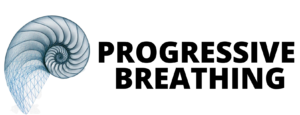The Detriments of Chronic Mouth Breathing to Cognitive Function, Memory, and Concentration
Chronic mouth breathing is a seemingly minor issue that can have serious consequences for cognitive function, memory, and sleep. Though often overlooked, the way we breathe plays a crucial role in maintaining brain health and mental clarity. When mouth breathing becomes habitual, it leads to inadequate oxygenation of the brain, disrupts nervous system regulation, and can even alter brainwave activity, resulting in a significant decline in cognitive performance. Here’s a detailed explanation of how chronic mouth breathing negatively impacts these key mental functions.
1. Reduced Oxygen Supply to the Brain
The most immediate detriment of mouth breathing is the reduced oxygen supply to the brain. When you breathe through your mouth, you bypass the nasal passages, which filter, warm, and humidify the air, preparing it for more efficient oxygen absorption. Mouth breathing often leads to shallow, rapid breaths, which do not fully engage the diaphragm, causing less oxygen to reach the bloodstream and brain.
The brain is highly oxygen-dependent, consuming around 20% of the body’s oxygen supply. Inadequate oxygen levels impair neuronal function, slowing down cognitive processes and reducing mental clarity. Over time, chronic low-grade hypoxia (oxygen deficiency) can lead to brain fog, memory lapses, and difficulty focusing on tasks. In severe cases, long-term oxygen deprivation from chronic mouth breathing may even increase the risk of neurodegenerative diseases.
2. Impaired Sleep Quality and Cognitive Deficits
Mouth breathing is often associated with sleep disorders, such as obstructive sleep apnea (OSA), where the airway becomes blocked, causing frequent interruptions in breathing during sleep. These disruptions reduce sleep quality, leading to chronic sleep deprivation. Poor sleep has well-documented effects on memory, learning, and concentration. During sleep, the brain consolidates memories and clears out waste products; disruptions in this process can impair memory formation and cognitive function.
Lack of restorative sleep from mouth breathing also leads to a heightened state of fatigue and poor mental performance during waking hours. Individuals who chronically mouth-breathe may find themselves struggling with distractibility, poor attention span, and an inability to process information effectively. This is especially problematic for students and professionals who rely on strong cognitive functioning to perform well academically or in the workplace.
3. Activation of the Stress Response
Chronic mouth breathing tends to activate the sympathetic nervous system—the part of the nervous system responsible for the body’s fight-or-flight response. This keeps the body and brain in a heightened state of stress, increasing the release of cortisol, a stress hormone that, when chronically elevated, has been shown to impair memory, cognitive function, and even shrink the hippocampus, the brain region involved in memory formation.
The chronic stress state induced by mouth breathing can also lead to anxiety and mental fatigue, further impairing focus and concentration. Instead of operating in a calm, focused state, individuals may experience mental turbulence and difficulty regulating their emotions, which can lead to burnout over time.
How Nasal Breathing Combats Cognitive Decline
In contrast to mouth breathing, nasal breathing offers multiple cognitive benefits, as it optimizes brain oxygenation, improves nervous system regulation, and supports better sleep.
1. Increased Oxygen Delivery to the Brain
Nasal breathing enhances the body’s ability to absorb and distribute oxygen efficiently. By breathing through the nose, we take deeper, slower breaths that engage the diaphragm, allowing for better oxygen-carbon dioxide exchange. This helps maintain optimal oxygen levels in the blood and, consequently, in the brain, supporting clear thinking, better memory, and sharp concentration.
Additionally, nasal breathing stimulates the production of nitric oxide, a molecule that plays a critical role in improving circulation and blood flow to the brain. Nitric oxide helps dilate blood vessels, ensuring that oxygen and nutrients are delivered more efficiently to brain cells, which promotes mental clarity and cognitive endurance.
2. Improved Sleep and Memory Consolidation
Nasal breathing, particularly during sleep, prevents conditions like sleep apnea and snoring that disrupt sleep cycles. By ensuring unobstructed airflow through the nasal passages, individuals can achieve deep, restorative sleep, which is crucial for memory consolidation and cognitive function. Better sleep translates to improved problem-solving abilities, creativity, and mental resilience during the day.
3. Activation of the Parasympathetic Nervous System
Nasal breathing encourages activation of the parasympathetic nervous system, which promotes relaxation and recovery. This allows the brain to operate in a calm, focused state, reducing anxiety and mental distractions. By promoting a balanced nervous system, nasal breathing supports enhanced concentration, emotional regulation, and long-term cognitive health.
Considerations
Chronic mouth breathing is highly detrimental to cognitive function, memory, and concentration, primarily due to its effects on oxygen delivery, sleep quality, and nervous system regulation. In contrast, nasal breathing offers a simple yet powerful way to restore mental clarity and brain function by improving oxygenation, sleep quality, and stress management. By making nasal breathing a daily practice, individuals can support their overall brain health, sharpen their minds, and foster long-term cognitive resilience.
Try these 3 Free Nasal Breathing Practices to improve your cognitive function, memory and sleep.



